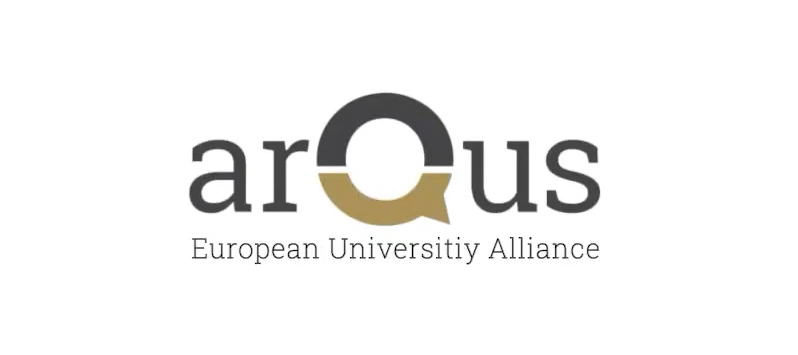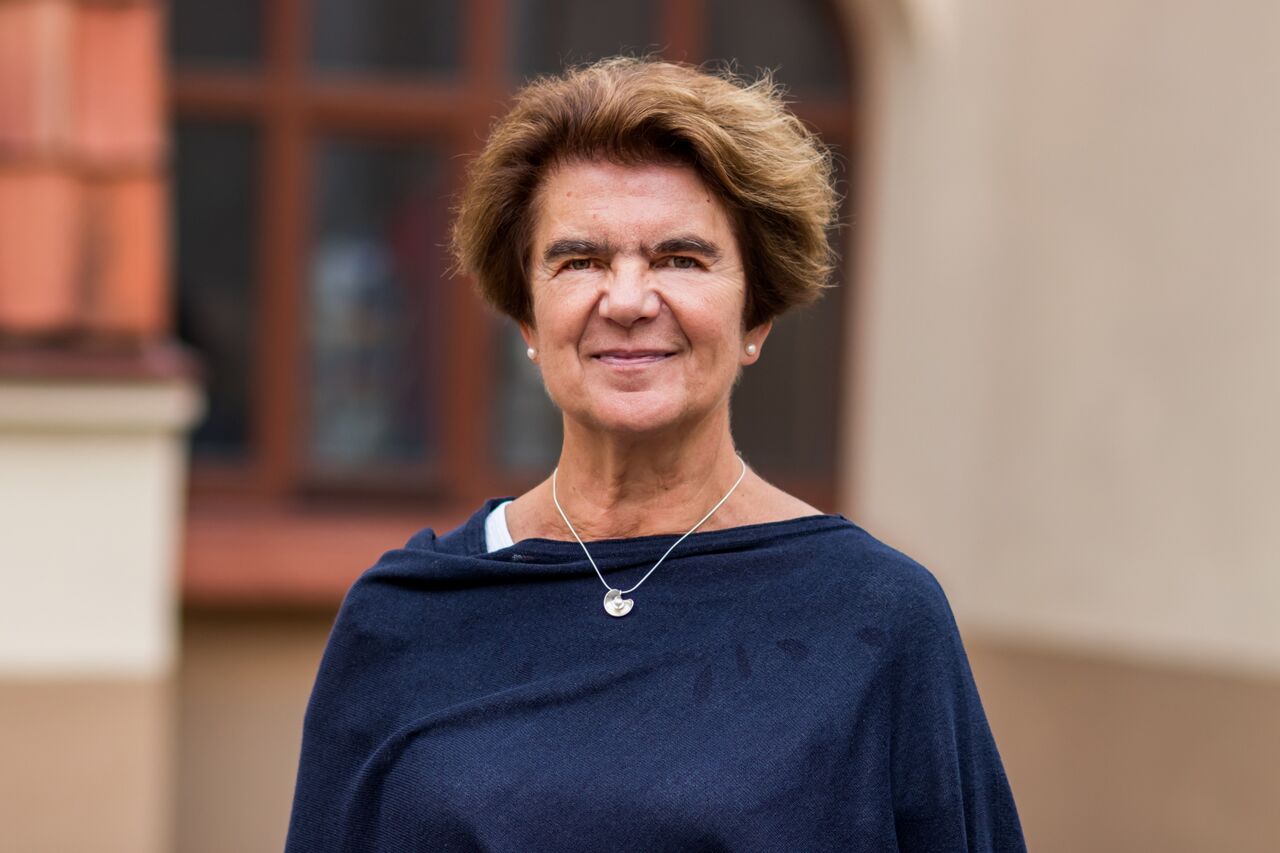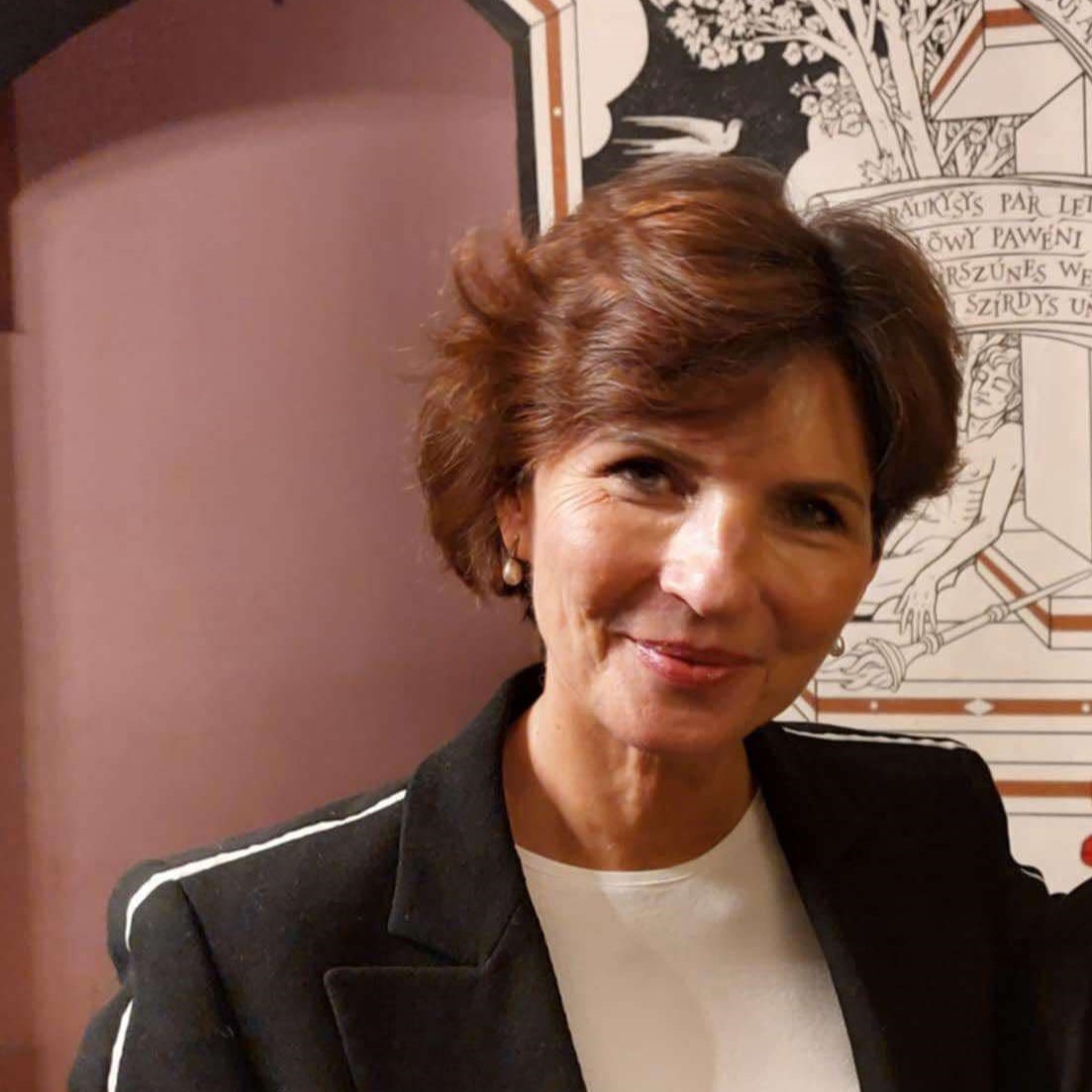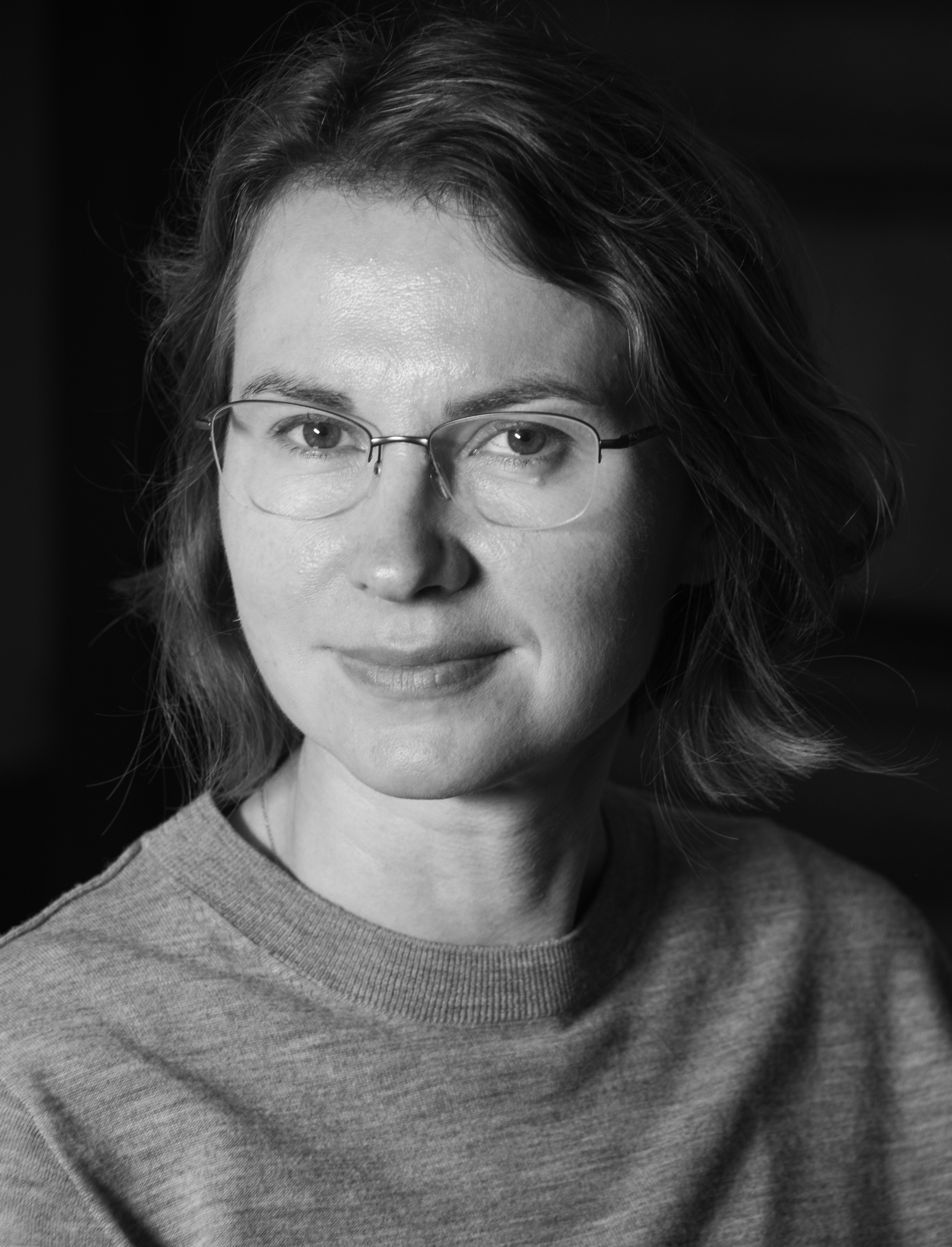
This online module is a great opportunity not only to learn basic Lithuanian, but also to get acquainted with various theoretical aspects about languages and cultures.
The best part is…these theoretical lectures are open to all members of the Arqus alliance! It means, that even if you are not part of this module, you can register and listen to it.
Participants of the module already listened to 3 engaging lectures:
Language acquisition through sensory engagement" by assoc. prof. Giedrė Balčytytė (October 25, 12:00–13:30 CET)
Dr. Giedrė Balčytytė is an associate professor at the Department of English Philology, as well as the Head of the Department at The Institute of English, Romance, and Classical Studies, Vilnius University (VU), Lithuania. She is an active member of the academic community, serving on the committee boards of both the BA English Philology and MA English Studies programmes, and overseeing The Pedagogical Internship for English Philology at VU. Dr. Balčytytė is also a long-standing member of the International Phonetic Association (IPA, UK) and LEUTE/ESSE (The Association of English Language Teachers of Lithuanian Universities/ The European Society for the Study of English). Her expertise spans a range of fields including English Phonetics and Phonology, contemporary didactics of English as a foreign language (EFL), alternative methods in teaching EFL, and the integration of music in language teaching. These subjects form the foundation of her teaching for both BA and MA students, where she combines theory with innovative practical approaches.
In her upcoming lecture, Dr. Balčytytė will explore perceptual approaches to foreign language acquisition through sensory engagement and Howard Gardner's Multiple Intelligences theory. She will focus on how music, the rhythmic qualities of language, and auditory elements can influence language learning, particularly how rhythm and sound patterns can enhance linguistic proficiency by tapping into different cognitive and sensory channels. By emphasizing the role of music and sound, she will offer insights into how these elements can deepen learners' connection to a new language, making the process more intuitive and effective.
“Every-day-life culture in Lithuania” by assoc. prof. Inga Hilbig (October 30, 11:00–12:30 CET)
Inga Hilbig is an associate professor at the Department of Lithuanian Studies, Faculty of Philology, Institute of Applied Linguistics, Vilnius University. Her research interests comprise sociolinguistics of childhood bilingualism and family language policy. She is also interested in cross-cultural communication. Inga Hilbig teaches Lithuanian as a second language and also Lithuanian culture. The aim of the lecture will be to introduce students to a concept of every-day-life culture, highlighting selected aspects of how contemporary Lithuanians behave and think.
More about Inga Hilbig:
“Current sociolinguistic situation in Lithuania” by prof. Meilutė Ramonienė (( November 11, 14:00–15:30 CET (15:00–16:30 Lithuanian time))

Meilutė Ramonienė is a professor of the Institute of Applied Linguistics at Vilnius University. Her research interests include applied linguistics, sociolinguistics, bilingualism and multilingualism, heritage language studies, language policy, teaching Lithuanian as a second language, Lithuanian onomastics. She has led research projects “Language usage and ethnic identity in urban areas of Lithuania”, “Sociolinguistic map of Lithuania: cities and towns”, “Language of emigrants”, „The Lithuanian language in diaspora: proficiency, usage, attrition“. Her published output includes several edited books on language use and language attitudes, language and identity, she is the author and co-author of textbooks for teaching Lithuanian as a second language, including „Teach Yourself Lithuanian“ (Hoder education, 2006), „Colloquial Lithuanian. The Complete Course for Beginners“ (Routledge, 1996, 2010), pedagogical grammars, including „Practical Lithuanian Grammar“ (in Lithuanian, English, Russian, Hungarian), „Lithuanian: A comprehensive Grammar" (Routledge 2020). She is the author and co-author of numerous research articles and book chapters published in Lithuania and abroad, and is editor-in-chief of the journal „Taikomoji kalbotyra“(Applied linguistics“. She has lectured at universities in Helsinki, Tartu, Zurich, Basel, Bern, Parma, Siena, Rouen, Seattle, Hobart.
The lecture will present the current sociolinguistic situation in Lithuania and the use of languages and dialects of the Lithuanian population in various domains. It will cover mother tongues and foreign languages, language proficiency and use, language attitudes and language policy.
And another 3 lectures will be delivered during upcoming weeks.
“The socio-cultural context of Lithuania from International Students' perspectives” by associate professor Loreta Chodzkienė (November 20, 15:00–16:30)

Assoc. Prof. Dr Loreta Chodzkienė graduated from Vilnius University in English Philology, did her internship at the University of Kent (UK), obtained a CELTA diploma at SIH, defended her PhD “EU Pedagogue’s Intercultural Communicative Competence and Its Developmental Socio-educational Factors” (Social Sciences). In 2017, she won a grant for a teaching visit at Gunma University (Japan).
Currently L. Chodzkienė has been running the courses on Communication across Cultures, Design of Academic Texts and Research Methodology at the Faculty of Philology, Vilnius University. She also supervises students’ (Inter)cultural internships. L. Chodzkienė investigates the factors contributing to the development of a person’s Intercultural Communicative Competence, analyses International (Incoming) students’ perspectives on the Lithuanian socio-cultural realia and conducts trainings on Intercultural Issues. Since 2021 the researcher has been exploring the benefits of Virtual Exchange through telecollaboration projects which provide an opportunity for Vilnius University students to collaborate with the students from the University of Latvia, Leon University (Spain), Los Lagos University (Chile) and Austral University (Chile). The L. Chodzkienė designed a study book on “What Should Every Student Know about Intercultural Communication?”, disseminated her research findings in a more than 25 scientific publications, made presentations at more than 30 international scientific conferences.
The aim of this lecture is to explore empirical insights gathered from 2012 to 2023 on the attitudes of 112 international students regarding Lithuania as their host country and Vilnius University as their academic destination. Drawing from diaries recorded by students from 22 countries, this lecture will address the question, 'Why Lithuania?' while examining how incoming students perceive and experience the cultural, physical, social-relational, and perceptual dimensions of life in Lithuania.
“History of the Lithuanian languge” by associate professor Gintarė Judžentytė-Šinkūnienė (November 28, 15:00–16:30)
Gintarė Judžentytė-Šinkūnienė is an Associate Professor of Semantics and Baltic Languages at Vilnius University. Her main research fields include lexical semantics, pragmatics (especially reference: spatial deixis and deictic gestures), semantics and pragmatics interface, Baltic linguistics. She is particularly interested in the expression of place deixis in the Baltic languages, i.e. how Lithuanians and Latvians construct space using deictic words. An integral part of this research is the conditions that determine the choice of deictic words. The researcher also focuses on students' academic language, problems of cognitive semantics and some issues of Lithuanian and Latvian Old Writing.
In this webinar, Gintarė Judžentytė-Šinkūnienė, Associate Professor of Semantics and Baltic Languages at Vilnius University, will reveal the origins of the Lithuanian language, its development and its journey to the present day. Among the Indo-European languages, Lithuanian is conservative in its grammar and phonology. It retains archaic features that are otherwise found only in ancient languages such as Sanskrit or Ancient Greek. Exposing this conservatism is therefore the aim of the lecture. Firstly, the speaker will introduce some terms necessary to understand the overall context, such as “balts”. Later, she will explain how the Baltic language group separated from the Indo-European language group, and what are the scholarly views on this separation. The focus will be on the Baltic proto-language and its transformation, the emergence of the Lithuanian language as a distinct linguistic unit and, to some extent, the formation of dialects.
“Lithuanian women’s literature” by dr. Daiva Litvinskaitė (December 3, 13:00–14:30)

Dr. Daiva Litvinskaitė works in the Department of Lithuanian Studies at the Faculty of Philology, Institute of Applied Linguistics, Vilnius University, where she teaches Lithuanian as a second language and Lithuanian literature. Her research interests also include women’s and gender studies. The lecture will examine the development of Lithuanian women’s literary tradition from the 19th century to the present, analyzing shifts in thematic focus among female writers and highlighting the contributions of prominent authors.
There is still time to register!
